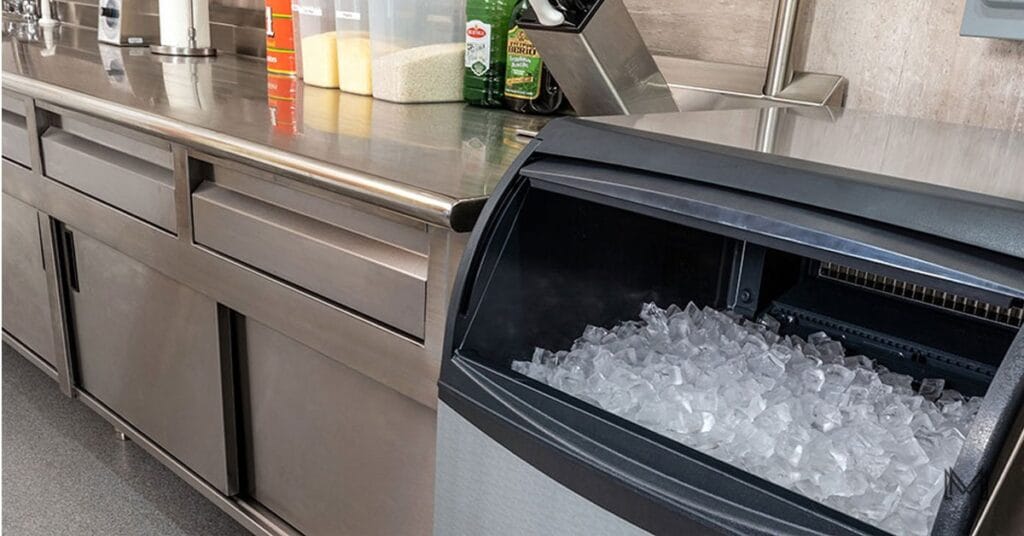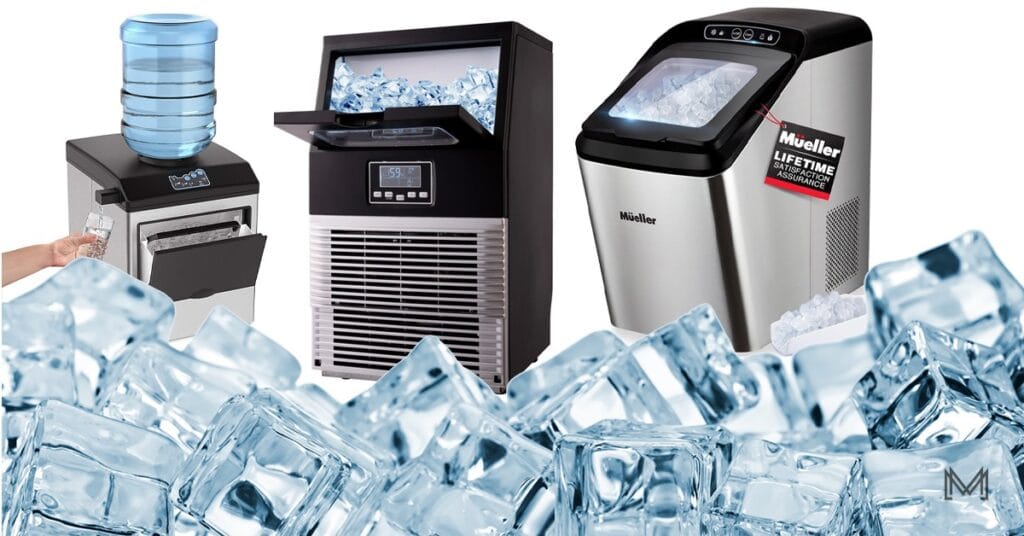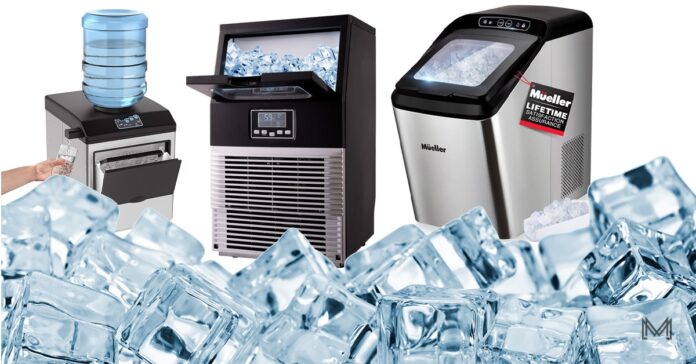From Zero to Ice King: Your Guide to Starting an Ice Making Business in South Africa
The sun beats down on the streets of Johannesburg, sweat trickling down your brow. Here is your guide to start an ice making business. You crave a cool drink. A refreshing burst of ice can chase away the heat. Suddenly, a lightbulb flashes in your mind: “Ice. Everyone needs ice, especially in this weather.” It’s a simple idea, but it’s the foundation of a booming business opportunity in South Africa: the ice-making industry.
- A Refreshing Opportunity: Why Ice?
- The Cool Facts: A Quick Look at the Ice Market
- Setting the Stage: Finding Your Ice-Making Hub
- Your ice-making machine is the heart of the operation.
- Water, Water Everywhere: Ensuring a Constant Supply
- Target Audience: Who's Thirsting for Your Ice?
- Delivering the Goods: Building a Reliable Delivery Network
- A Legal Foundation: Registering Your Business
- Beyond the Basics: Building a Successful Ice Empire
- From Freezing to Thriving: Your ice-making success story
- Frequently Asked Questions – Start an Ice Making Business
Starting an ice making business in South Africa can seem straightforward. It is more than just buying a machine and filling bags. It’s about understanding the market, navigating the seasonal fluctuations, and building a reliable and efficient operation.
A Refreshing Opportunity: Why Ice?
In a land where scorching summers are the norm, the demand for ice is constant. Ice is necessary for various purposes. It chills drinks at a braai. It keeps seafood fresh at a local market. It also cools down beverages at a bustling shebeen. The ice-making business, thus, offers a solid foundation for aspiring entrepreneurs.
But the magic of this venture lies in its versatility. Ice isn’t just for keeping drinks cold; it’s a vital part for industries like fishing, catering, and even healthcare. This diverse range of potential clients makes the ice making business resilient. It weathers even the seasonal fluctuations that come with the South African climate.

The Cool Facts: A Quick Look at the Ice Market
Before you dive headfirst into the ice-making business, a glimpse at market trends is crucial.
- Peak Season: The hottest months, from December to February, witness a surge in demand for ice. Families, businesses, and events all clamour for a refreshing respite.
- Off-Season: While the demand dips during the cooler months, ice remains a staple for businesses. This is especially true for those in the catering and hospitality industries.
- Growth Potential: South Africa’s growing economy and urbanisation have led to a steady demand for ice. We expect the market to continue its upward trajectory.
Setting the Stage: Finding Your Ice-Making Hub
Finding the right location for your ice-making operation is the first step towards building a successful business.
- Operational Premises: You don’t need to start with a fancy, expensive commercial building. You can use a dedicated space. It is an unused garage, a rented shed, or even a well-constructed outdoor room. Any of these can serve as your ice-making haven.
- Think long-term: While starting small can be tempting, it’s wise to consider future expansion. Choose a location that can accommodate growth, ensuring that you have enough space for potential equipment upgrades and increased production.
Your ice-making machine is the heart of the operation.
Of course, the machine itself is the key to your ice-making empire. The market offers a range of options, each with its own price tag and production capacity.
- Budget wisely: There is an ice machine for every budget. Prices range from under R2,000 for smaller personal units to over R50,000 for commercial-grade machines.
- Production Power: Remember, your ice machine is your workhorse. Choose a model that fits the demands of your target market. It should cater to a few families or supply large restaurants.
Water, Water Everywhere: Ensuring a Constant Supply
Ice is essentially frozen water, so having a reliable and plentiful supply is non-negotiable.
- Municipal Water Blues: Using municipal water can be expensive, and its quality can affect your ice’s taste and clarity.
- Rainwater Harvesting: Harnessing rainwater through collection systems is a cost-effective and sustainable solution, especially during the rainy season.
- River Runoff: If your location is near a river, you can source water directly from the natural stream. This ensures a constant and free supply.
- Investing in a water purification system guarantees clear ice. It ensures your ice is devoid of impurities, regardless of your water source.
Target Audience: Who’s Thirsting for Your Ice?
Understanding your target market is critical to successful ice sales.
- Businesses, Businesses, Businesses: Focusing on businesses like restaurants, hotels, bars, nightclubs, and caterers can be a lucrative strategy. These outlets often buy in bulk, ensuring steady and consistent sales.
- Beyond the Bar: Don’t neglect the potential of smaller businesses, like fishmongers, fruit vendors, and even medical facilities. Ice has a wide range of applications, and tapping into these niche markets can expand your reach.
- Retail Sales: Selling ice directly to individuals can be a supplementary revenue stream. Setting up a stall at local markets or partnering with convenience stores can broaden your customer base.
Delivering the Goods: Building a Reliable Delivery Network
In the ice-making business, time is of the essence. Your customers rely on you for prompt deliveries, so having a reliable transport system is crucial.
- Carpool to Success: A sturdy vehicle, whether a bakkie or a reliable car, is your lifeline. It helps you efficiently transport your ice to customers and build a reputation for prompt and reliable service.
- Efficient Routing: Optimise your delivery routes to minimise travel time. Aim to maximise the number of deliveries you can finish during a single trip.
A Legal Foundation: Registering Your Business
Before you start selling ice, make sure you have the legal framework in place.
- Formalise Your Venture: Registering your ice-making business is a crucial step to guarantee legitimacy and compliance with South African regulations.
- The CIPC Connection: The Companies and Intellectual Property Commission (CIPC) offers a straightforward and affordable registration process. This makes it simple to formalise your operation as a small business.
- Registration is important for several reasons. It legitimises your business. It also makes it easier to secure loans, apply for licenses, and gain access to business opportunities.
Beyond the Basics: Building a Successful Ice Empire
Starting an ice-making business in South Africa is a venture that requires more than just buying equipment. It’s about understanding your market, developing efficient processes, and building lasting relationships with your customers.
- Embrace innovation: Stay ahead of the curve by exploring new ice products and services. Consider options like flavoring ice. Explore specialty ice sculptures. You even think about offering ice delivery subscriptions.
- Market Your Magic: Leverage social media platforms, local advertising, and word-of-mouth marketing to spread the word about your ice-making enterprise.
- Build Relationships: Create robust connections with your customers. Deliver exceptional service. Go above and beyond to guarantee their satisfaction.
- Stay Sustainable: Embrace eco-friendly practices, like using recycled materials for packaging and minimising energy consumption in your production process.
From Freezing to Thriving: Your ice-making success story
In the competitive world of business, the ice-making industry seems simple. Yet, success hinges on meticulous planning. Strategic execution is also crucial. You need a well-defined business plan. Combine this with a strong work ethic and a focus on customer satisfaction. Your ice-making business can become a refreshing success story in the heart of South Africa.
Remember, the demand for ice will always be there, especially in a country blessed with sunshine and heat. Grab your bucket. Fire up your ice machine. Let the cool breeze of opportunity carry you towards your ice-making dreams.

Frequently Asked Questions – Start an Ice Making Business
How much does it cost to start an ice making business?
How much it costs to start up depends on how big your business is. You will need to consider the cost of purchasing an ice machine. Additionally, factor in the expense of a water cleaning system and packing materials. A reliable car for delivery is important. Don’t forget any licenses or permits you need. It doesn’t cost more than R50,000 to start a small business. A larger business needs at least R100,000 to launch operations.
What are the most important legal conditions to start a business making ice?
First, you must register your business with the Companies and Intellectual Property Commission (CIPC). This registration makes your business a legal entity. It gives you an advantage over other business opportunities. You’ll also have to follow the rules set by the local government about food safety and trash collection.
What are some effective ways to market my ice making business?
Pay attention to your target market, which is mostly businesses like hotels, restaurants, and bars. Advertise in your area, on social media sites, and through word of mouth. Strive to keep a loyal crowd, cultivate robust connections, and offer exceptional service.
In South Africa, what are the most difficult aspects of running an ice business?
These are the biggest problems:
- Water Supply: It is essential to have a reliable water supply. It should not cost a lot of money, especially if you’re not using city water.
- Seasonal Changes: Ice sales fluctuate with the seasons because people prefer it most in the summer.
- Competition: The market already has established players. You’ll need to set yourself apart by offering low prices and outstanding service. You also consider unique ice goods.
What are some beneficial ways to make money in the ice industry?
- Focus on Quality: Make sure your ice is clear, of excellent quality, and free of any impurities.
- Efficient Operations: To cut down on waste and boost profits, make sure your production and shipping systems work well.
- Customer Service: Give exceptional service and exceed expectations.
- Stay Flexible: Keep up-to-date with what’s new in the market. Follow trends closely. Be prepared to change your business plan when necessary.


